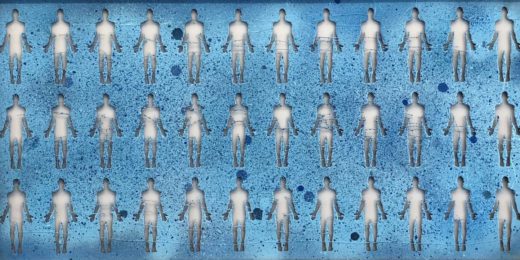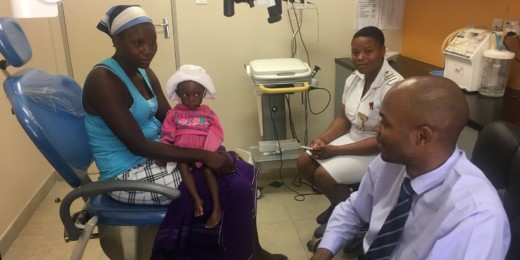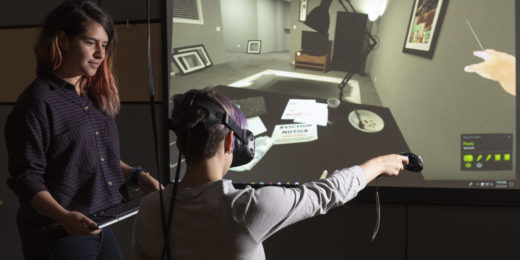The first nursing postdoc at Stanford, Nancy Dudley, brings a passion for the care of the severely ill to her palliative care research.
Month: October 2018
Raising awareness of rheumatic heart disease in India through biodesign
A team of Stanford Biodesign innovators has developed a video to increase awareness in India of a serious heart condition, RHD.
From the Scope archives: Learning how to learn medicine
Medical trainees, writes one student, are like glorified breathing-and-walking medical dictionaries. But, given their knowledge will ultimately help patients, that's okay.
The future of ethics and biomedicine: An interview
In this radio show, Stanford bioethicist David Magnus and host Russ Altman discuss the ethical implications of using AI in health care.
A deeper look at ‘Reflecting Frankenstein’
In an essay published in JAMA, a Stanford medical student discusses the meaning behind an art installation he created to commemorate the novel Frankenstein.
New ENT clinic treats children in Zimbabwe
Stanford’s Peter Koltai is participating in an effort to advance much-needed ENT care for children in Zimbabwe.
Stanford project brings health education videos to mothers in South Africa
A Stanford team is developing health education videos that can be used by community health workers to help mothers and babies in South Africa.
New hope for a drug to treat lymphedema symptoms
The anti-inflammatory drug ketoprofen shows promise as effective medical treatment for lymphedema symptoms, small Stanford study finds
A stage IV cancer patient discusses what it means to live well with serious illness
A stage IV cancer patient discusses what it means to live well with serious illness at Stanford Medicine's Jonathan King Lecture series.
Can virtual reality help people become more compassionate?
Stanford researchers found that people who underwent a virtual reality experience, called “Becoming Homeless,” were more empathetic toward the homeless.
New analysis examines the importance of location in the opioid crisis
A team of economists have examined the importance of location and opioid prevalence to help tease out the relative importance of supply in the epidemic.
Stanford team looks at dangers of teens’ vaping habits
New Stanford research shows alarming trends in teens' use of a popular vaping device, suggesting they need better education about its addictive potential.
What digital health companies need to do to succeed
Health care innovators should take a needs-driven approach, writes Paul Yock, founder of the Stanford Byers Center for Biodesign.
How a new system improved wait times for Stanford kidney transplant patients
A new Stanford strategy for kidney transplant wait-list management has been shown to help patients get into surgery faster.
Understanding AFib: Slowing down the dancing heart
In this fourth post in the Understanding AFib series, physician Randall Stafford explains different drugs that are used to slow down the heart.
In the Spotlight: Enjoying research and exploring opportunities
In this In The Spotlight Q&A, second-year medical student Jill Anderson shares her thoughts about health care and her future career plans.

















